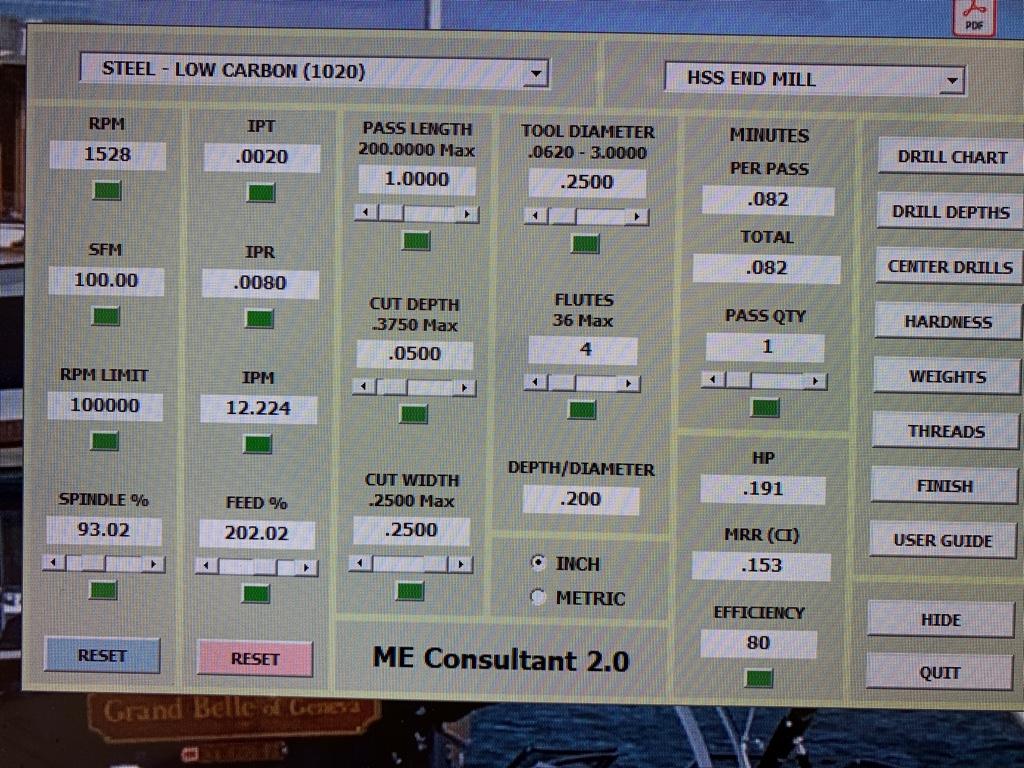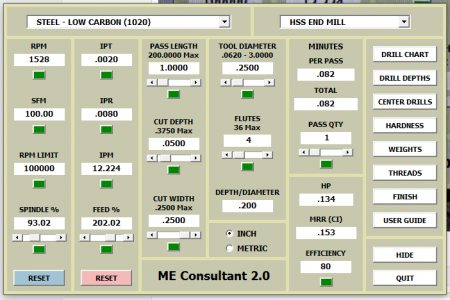- Joined
- Oct 30, 2012
- Messages
- 960
Honestly the choices and variety of cutter materials coatings and geometry available for specific applications is almost infinite. It will make your head spin.
I have found that McMaster Carr while having a sometimes deserved reputation for being expensive is actually not that bad on end mills.
Its a crapshoot what exact brand you’ll receive but when we order at work We seem to get YG-1 often sometimes meilin (sp?)
Can you save a few bucks on eBay ?sure but buyer beware.
I have found that McMaster Carr while having a sometimes deserved reputation for being expensive is actually not that bad on end mills.
Its a crapshoot what exact brand you’ll receive but when we order at work We seem to get YG-1 often sometimes meilin (sp?)
Can you save a few bucks on eBay ?sure but buyer beware.



